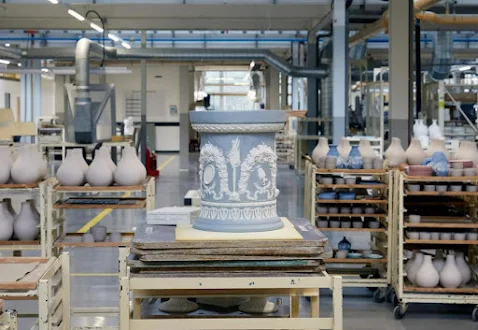Aligning Business, Graced Creativity, Capitalism and the Common Good
Last week I wrote about the ‘graced imagination’ and its role in human supernatural creativity, based upon Thomas Aquinas’ description of the imagination. This week, I am discussing a book that describes one the most important human activities to which that supernatural creativity can contribute, the work of entrepreneurship.
The author of The Art of Principled Entrepreneurship, Andreas Widmer, teaches at the Catholic University of America business school, and is himself an experienced entrepreneur. This is not a dense book on business theory, but a readable description of a set of principles that govern good business, written to inspire entrepreneurs to follow their calling and contribute positively to society. It is well thought out and the writer clearly understands how what he describes is rooted in Catholic social teaching, and so, I suggest, a few open-minded intellectuals might learn something by reading this book.This should be distinguished, incidentally, from the ESG (Environmental, Social and Governance) movement which is all the rage at the moment, and is presented a way of making business just, but in fact promotes the values of destructive revolutionary Marxism, destroying lives and the profitability of business. Principled entrepreneurship, in contrast, genuinely benefits all involved because it is directed to the common good.
Widmer first defines Principled Entrepreneurship, as that which maximizes the long term profitability of the business by creating superior value for customers while consuming fewer resources and always acting lawfully and with integrity. (Principled Entrepreneurship is a trade mark)
Then he sets out and explains the principles by which this ideal is achieved. These are his ‘Five Pillars’ :
- The economy exists for people, not people for the economy
- To work is to create, to create is to be human
- Culture eats strategy for breakfast
- Principled business creates win-win solutions
- Always think like an entrepreneur.
The practice of doing business does not always receive good press (to put it mildly). While many recognise that without it we’d all be impoverished, those who are good at business are often assumed to be so because they are greedier than their competitors, and that their success is at the expense of others.
Consequently, the images that the words capitalism, business, industrialization, corporate culture, for example, conjure for many people are influenced by hundreds of years of Romantic, Socialist and Marxist critiques and false propaganda, which paints these activities as necessarily exploitative and destructive. So while the small-businessman, such as the street vendor, might be viewed positively, it is often assumed that the business executive or owner of a large business, must be resorting to exploitation and inducing misery for others, because they are assumed to be making more money. Bosses are by definition callous and smug crooks or fat cats, living comfortable lives separated from their workers or customers.
 |
| The Board Room, 1900, by Ferdinand Brutt |
This is a false picture. While it is certainly the case that there are bad people in business, the actual practice of creating and establishing a business is not an intrinsically evil pursuit, I would contend, and so would Andreas Widmer. Rather, it is more accurate to say that the ends to which it is directed reflect directly the intentions of those who run the business, for good or ill.
In that sense business is just like art - the artist can exercise his skill well or badly, but the practice of creating art does not naturally incline him in either direction. We might observe, for example, that most of the art schools in the country promote one or other iteration of Marxist ideology with their art, but that doesn’t make art intrinsically bad. It just makes for bad art. It is still worth becoming an artist and directing that calling to a Christian end.
Once we accept this premise, that doing business is an intrinsically good pursuit, this changes everything. Rather than being a necessary evil to be controlled by regulation, it becomes - as with any other natural human activity - one that might be a personal vocation and open to guidance by the grace of God. Supernatural creativity and the graced imagination can potentially guide its practice.
Considered in this way, the actual practice of doing business can be a virtue, just as the creation of fine art is a virtue. As a virtue, its practice can lead to joy and fulfillment in life as part of the Christian vocation. It is not a moral virtue, although it is a given that one cannot be virtuous if the moral law is broken. The principle of choice in this virtue is not the moral law, but rather the recognition of the greatest good, which is the most beautiful route forward. The more we become sensitive to the beauty around us and to beauty as a sign of the divine, the more we are inclined to take the more beautiful choices before us. This applies to businessmen as much as it does to fine artists, for all are called to the Way of Beauty.
This idea that the interests of business ( and capitalism in general) are in conflict with the good of society and ordinary people arises, it seems to me from what I would say are flawed conceptions of the common good and the love of self, that lead to the idea that the two are necessarily in conflict with each other. The question then is how to reconcile them in practice?. Some argue that the interests of the individual person must be subordinated to those of the common good, while others argue the reverse. Both are in error. Societies that are structured around these assumptions, I would argue, tend to either Godless tyranny or Godless anarchy (which in turn leads to tyranny) respectively.
A similar tension exists in the minds of many also between the right to private property and the common good, and this too is seen by some as two irreconcilable principles that require one to be compromised in order for any practical route forward to be attained. In this case private property is usually viewed as a necessary evil at best which must be restricted so that the common good is not compromised.
As a consequence of these errors of understanding, business is seen as an intrinsically selfish pursuit, at best a necessary evil and a bi-product of the Fall. The grasping businessman who is successful can only redeem himself by giving away his profits as a philanthropist.
 |
| Portrait of a Businessman, by Mikhael Vrubel; Russian, 19th century. |
This book by Andreas Widmer is grounded in what I believe is the correct understanding of the patterns of the relationships between private property rights, self-interest and the common good. The principled entrepreneur will, he explains, actually lead to a more successful business that is profitable and affects those who encounter it (whether as investor, worker or customer) spiritually and materially for the good.
It will, I hope, inspire those who have a vocation of work to adopt an entrepreneurial approach that is a graced, innovative and imaginative in their daily work. Even a cog in a corporate machine, can, in the vision of Widmer, become an entrepreneurially minded, creative influence for the good, inspired by God, who draws people to God.
One of the five pillars that he describes as being essential to the principled entrepreneurial mindset is: ‘to work is to create, and to create is to be human’. In the opening paragraph of the chapter he says:
When we work, we do not only make more, but we become more. The Principled Entrepreneur is primarily a creator - someone who pursues their excellence by creating value for others profitably. That value entails supporting others on the team in their pursuit of excellence and appropriately rewarding all stakeholders physically, mentally and spiritually. (p57)
 |
| Beautiful mass production! Wedgewood pottery in their factory in England |



